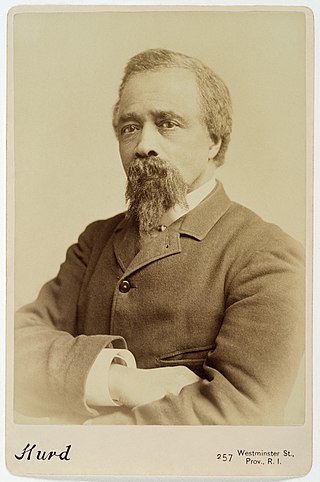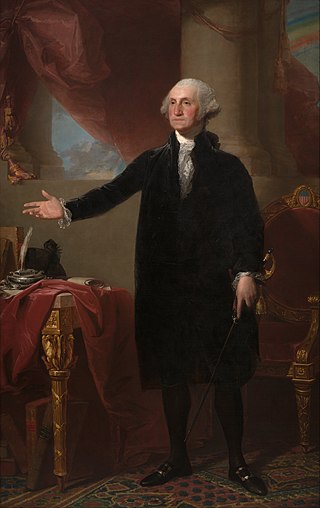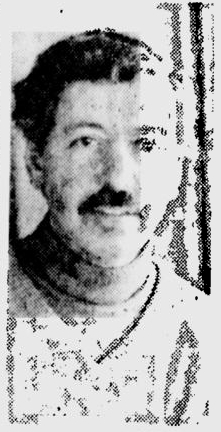Related Research Articles

Edward Mitchell Bannister was a Canadian–American oil painter of the American Barbizon school. Born in colonial New Brunswick, he spent his adult life in New England in the United States. There, along with his wife Christiana Carteaux, he was a prominent member of African-American cultural and political communities, such as the Boston abolition movement. Bannister received national recognition after he won a first prize in painting at the 1876 Philadelphia Centennial Exhibition. He was also a founding member of the Providence Art Club and the Rhode Island School of Design.

Gilbert Stuart was an American painter born in the Rhode Island Colony who is widely considered one of America's foremost portraitists. His best-known work is an unfinished portrait of George Washington, begun in 1796, which is usually referred to as the Athenaeum Portrait. Stuart retained the original and used it to paint scores of copies that were commissioned by patrons in America and abroad. The image of George Washington featured in the painting has appeared on the United States one-dollar bill for more than a century and on various postage stamps of the 19th century and early 20th century.

John La Farge was an American artist whose career spanned illustration, murals, interior design, painting, and popular books on his Asian travels and other art-related topics. La Farge made stained glass windows, mainly for churches on the American east coast, beginning with a large commission for Henry Hobson Richardson's Trinity Church in Boston in 1878, and continuing for thirty years. La Farge designed stained glass as an artist, as a specialist in color, and as a technical innovator, holding a patent granted in 1880 for superimposing panes of glass. That patent would be key in his dispute with contemporary and rival Louis Comfort Tiffany.

Robert William Vonnoh was an American Impressionist painter known for his portraits and landscapes. He traveled extensively between the American East Coast and France, more specifically the artists colony at Grez-sur-Loing.

The Lansdowne portrait is an iconic life-size portrait of George Washington painted by Gilbert Stuart in 1796. It depicts the 64-year-old president of the United States during his final year in office. The portrait was a gift to former British Prime Minister William Petty, 1st Marquess of Lansdowne, and spent more than 170 years in England.

Charles Sheeler was an American artist known for his Precisionist paintings, commercial photography, and the 1921 avant-garde film, Manhatta, which he made in collaboration with Paul Strand. Sheeler is recognized as one of the early adopters of modernism in American art.

John Quincy Adams Ward was an American sculptor, whose most familiar work is his larger than life-size standing statue of George Washington on the steps of Federal Hall National Memorial in New York City.

James David Brooks was an American Abstract Expressionist, muralist, abstract painter, art teacher, and winner of the Logan Medal of the Arts.

Robert Feke was an American portrait painter born in Oyster Bay, New York. According to art historian Richard Saunders, "Feke’s impact on the development of Colonial painting was substantial, and his pictures set a new standard by which the work of the next generation of aspiring Colonial artists was judged." In total, about 60 paintings by Feke survive, twelve of which are signed and dated.
Henry Geldzahler was a Belgian-born American curator of contemporary art in the late 20th century, as well as a historian and critic of modern art. He is best known for his work at the Metropolitan Museum of Art and as New York City Commissioner of Cultural Affairs, and for his social role in the art world with a close relationship with contemporary artists.

The Portrait of Juan de Pareja is a painting by Spanish artist Diego Velázquez of the enslaved Juan de Pareja, a notable painter in his own right, who was owned by Velázquez at the time the painting was completed. Velázquez painted the portrait in Rome, while traveling in Italy, in 1650. It is the earliest known portrait of a Spanish man of African descent.

The Seamen's Church Institute is a social service organization and historic building located in Newport, Rhode Island. Founded in 1919, the Institute's mission is to provide men and women of the sea and persons referred from the community a safe haven in which they may find comfort, recreation and benefit.

Edith Woodman Burroughs was an American sculptor. Her work was included in the 1913 Armory Show.

Emil Fuchs was an Austrian–American sculptor, medallist, painter, and author who worked in Vienna, London and New York. He painted portraits of Queen Victoria and Edward VII and was fashionable among London high society in the early 20th century.
Jane Stuart was an American painter, best known for her miniature paintings and portraits, particularly those made of George Washington. She worked on and later copied portraits made by her father, Gilbert Stuart, and created her own portraits. In the early 19th century, she assumed the responsibility of supporting her family after her father's death. She first worked in Boston, but later moved to Newport, Rhode Island, where she was the first woman who painted portraits. In 2011, she was inducted into the Rhode Island Heritage Hall of Fame.

Daniel J. Robbins was an American art historian, art critic, and curator, who specialized in avant-garde 20th-century art and helped encourage the study of it. Robbins' area of scholarship was on the theoretical and philosophical origins of Cubism. His writings centered on the importance of artists such as Albert Gleizes, Jean Metzinger, Henri Le Fauconnier and Jacques Villon. He was a specialist in early Modernism, writing on Salon Cubists and championed contemporaries such as Louise Bourgeois and the Color Field painters. Art historian Peter Brooke referred to Robbins as "the great pioneer of the broader history of Cubism".
Joseph Henry Breck (1885–1933) was an American curator and museum director. During his career he served as a Director of the Minneapolis Society of Fine Arts, Curator of the Decorative Arts Department of The Metropolitan Museum of Art, Assistant Director of The Metropolitan Museum of Art, and first Director of The Cloisters.
The year 2015 in art involves various significant events.
Walter Arthur Liedtke, Jr. was an American art historian, writer and Curator of Dutch and Flemish Paintings at the Metropolitan Museum of Art. He was known as one of the world's leading scholars of Dutch and Flemish paintings. He died in the 2015 Metro-North Valhalla train crash.
Pinkney Near was the curator of the Cincinnati Museum of Art and afterward the curator of the Virginia Museum of Fine Arts for thirty years. He was responsible for the VMFA's acquisition of many treasured works of art, including arranging for the museum to purchase from John Lee Pratt the Francisco Goya portrait of General Nicolas Guye and from the collection of Count Karol Lanckoroński of Vienna, Austria, a rare marble sarcophagus dating to the 2nd century B.C. The Guye portrait was long believed to be the most valuable single work of art in the VMFA's collection. The Goya portrait of General Guye is on view prominently in the posthumously created Pinkney Near Gallery at the VMFA.
References
- 1 2 3 4 5 6 7 8 Harmon, Brigid (December 2009). "The Metropolitan Museum of Art Archives Durr Friedley Records, 1906-1918" (PDF). Metropolitan Museum of Art. Metropolitan Museum of Art Archives. Retrieved 17 December 2015.
- 1 2 3 "Reviving Durr Freedley; Newport's Forgotten Artist". Newport Art Museum. Archived from the original on 19 December 2015. Retrieved 17 December 2015.
- 1 2 3 Hinman, Chuck (24 September 2015). "Rhode Island Artscape: Newport's Forgotten Artist". Rhode Island Public Radio. Retrieved 17 December 2015.
- 1 2 3 4 5 6 7 8 Van Siclen, Bill (22 November 2015). "Newport Art Museum showcasing the exquisite work of portrait artist Durr Freedley". Providence, RI: The Providence Journal. Retrieved 17 December 2015.
- 1 2 "Seaman Loses Life in Motor Accident". North Adams, Mass: The North Adams Transcript. 23 March 1938. p. 1. Retrieved 17 December 2015.
- 1 2 "Body of Durr Freedley Sent to Indianapolis". Newport, RI: The Newport Mercury. 25 March 1938. p. 2. Retrieved 17 December 2015.
- ↑ "Durr Freedley: Memorial Exhibition of Paintings; November 1-November 30, 1938". Indianapolis, Indiana: Indianapolis Museum of Art.
November 1-November 30, 1938; Durr Freedley was born in Indianapolis in 1888 and lived until March 23, 1938. He is best known for his portraits. Exhibition included 26 paintings and 6 drawings